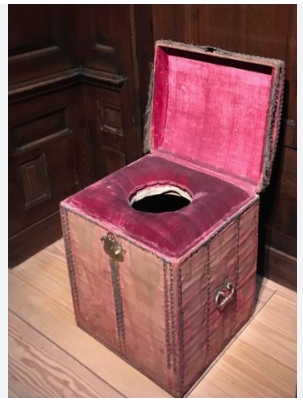By Reg Green

I learned this week from the online ‘History Facts‘ that one of the sinecures coveted by British courtiers in the late middle ages was ‘groom of the stool,’ who helped with the king’s bathroom arrangements (the editors pointing out delicately that stool referred to a personal toilet that was carried around when he was travelling.)
I reflected that at one moment in history I was in line for that job, when my stepfather, whose business called itself ‘ecclesiastical and industrial decorators,’ was asked to make a toilet seat for a visit to Manchester Cathedral by Queen Elizabeth II. Think what an advantage it would be, when applying for a job in which loyalty to the chief was the main requirement, to include in your resumé a note that you were once “Archivist of the Royal Stool.’
For that accomplishment alone, Mr Trump might have added me to his — how to say? — Cabinet.








3 Responses
Keenly observed — yet in the context of ordering a royal toilet seat from a “business called ‘ecclesiastical and industrial decorators,’” a semantic question arises of whether something as discreetly located as a toilet seat can be called a “decoration”?
Moliere’s father was an upholsterer of the royal chairs.